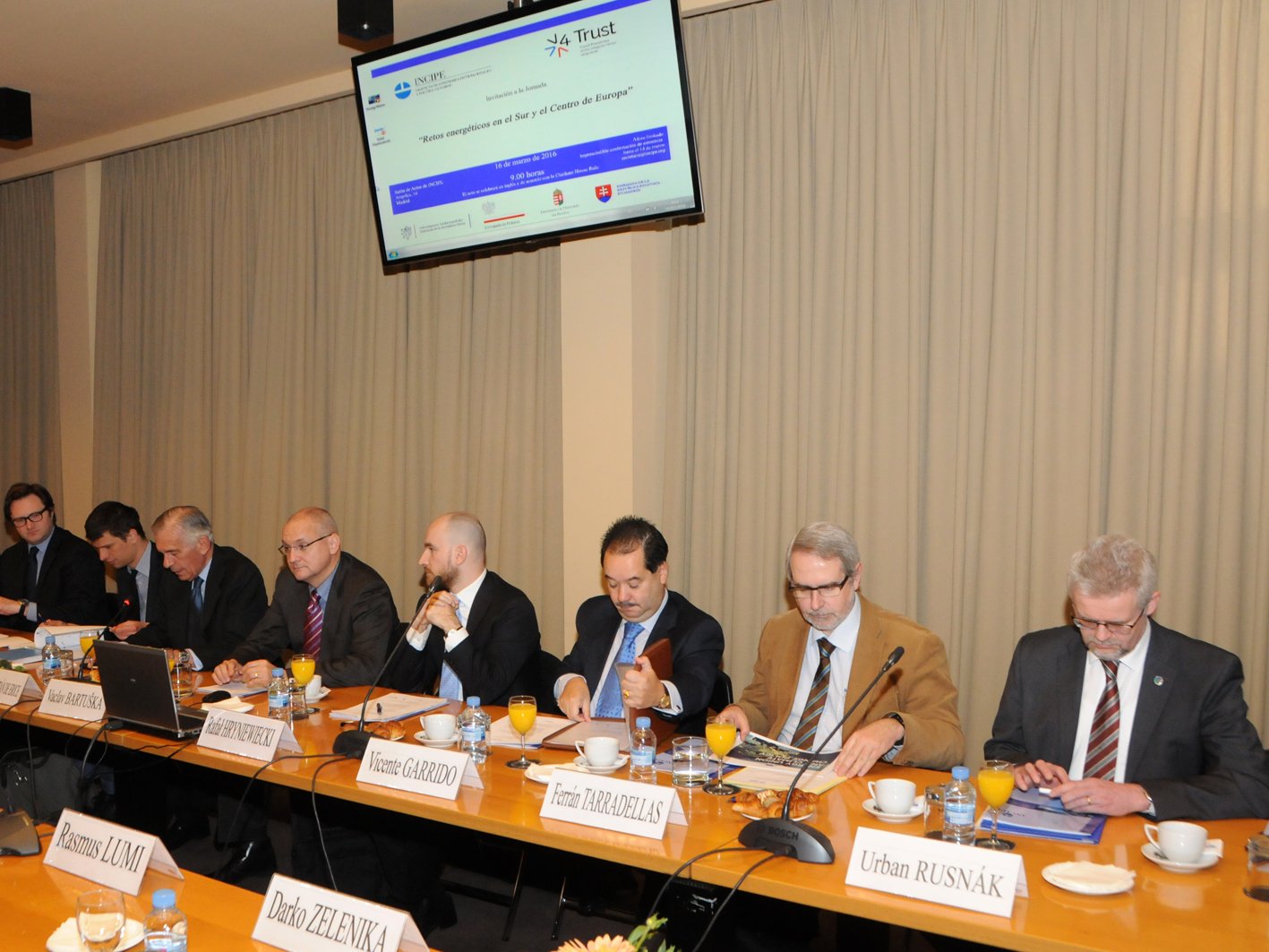Conference: Energy Challenges in South and Central Europe

On March 18, 2016, INCIPE hosted a Conference titled Energy Challenges in South and Central Europe. The keynote speakers of the event were: Václav Bartuška, Ambassador-at-Large for Energy Security and Special Envoy in the Czech Republic’s Ministry of Foreign Affairs; Rafal Hryniewieck, Chief Expert in the Department of Economic Cooperation in the Polish Ministy of Foreign Affairs; Pál Ságvári, Ambassador-at-Large for Energy Security in the Ministry of Foreign Affairs and Trade of Hungary; and Urban Rusnák of Slovakia, Secretary General of the International Energy Charter.
In the current global spectrum, the European Union’s Energy Union is the third largest energy supplier, behind only China and the United States, but earns the title of largest energy importer. At the same time, it maintains the second highest energy cost in the world. Facing this status, as well as the international trend of addressing climate change and looking for alternatives to fossil fuels, the EU has composed a new strategy regarding energy with five dimensions: Energy security, solidarity, and trust; a fully integrated energy market; energy efficiency; decarbonizing the economy; and research, innovation, and competitiveness. The EU views the global initiative concerning the environment as an economic opportunity, while abundant support for a common energy policy among EU member states could increase the new strategy’s effectiveness.
With respect to EU’s energy strategy, the path toward the goal of international interconnectedness within the EU remains complex; Spain, an energy island, is not on track to reach its interconnection goal by the year 2020 deadline.
Another significant region when regarding EU energy, although in a distinct way, is the Visegrad Group. Composed of the Czech Republic, Hungary, Poland, and Slovakia, the V4 holds the position of fifth largest economy in Europe. With energy security as its main goal, in addition to its valuable geographic and strategic position in the continent, the V4 region proves indispensable when discussing energy matters. In contrast to Spain’s isolated position, the recent energy agreement between the Czech Republic and Germany demonstrates the possibility of international agreements regarding energy matters.
Recent changes in the international oil market include the reappearance of Iran, the rise of United States’ contributions through shale oil, and the sheer abundance of oil in the world. The outlook for the future consists of long-term, low oil prices as a result of an extreme oversupply; new supplies, technology, and energy-efficiency policies must emerge in response. There exist various positive consequences of this new global market structure, including more options for fuels and increased negotiating power for consumer countries. Significant political factors of this new market include the present challenges in the MENA region, in addition to the necessity of addressing strategic maritime routes such as the Suez Canal. Currently, it appears that geopolitics have taken precedence over business regarding energy negotiations between nations. A possible outlook for the future includes the emergence of energy as a global commodity, as well as a stronger focus on energy efficiency, renewable energy, and nuclear energy while maintaining realistic goals and expectations.
A major factor when considering options for alternative energy sources is the financial difficulty for average citizens to partake. While one section of the European population can afford the new technologies and resources necessary for maintaining an ecologically sustainable lifestyle, this ability is not all-encompassing. Additionally, these new practices pose complications for the urban population who, due to existing urban infrastructure, cannot simply switch to a fully “green” way of life. As the 21st century progresses, the growing interdependence between regions and nations as well as the dynamic international arena suggest a continuous development of technologies, policies, and relationships across the globe.
Members of diverse fields attended the conference, including ambassadors and diplomats from various nations. The event ended with a questionnaire where attendees inquired about different topics, including the status and possibility of international agreements as well as the EU’s role as a unit regarding energy.
Maria Peurach
INCIPE




